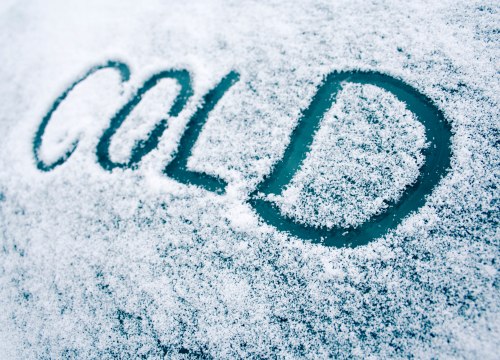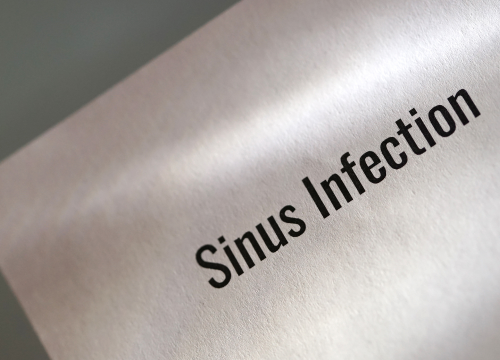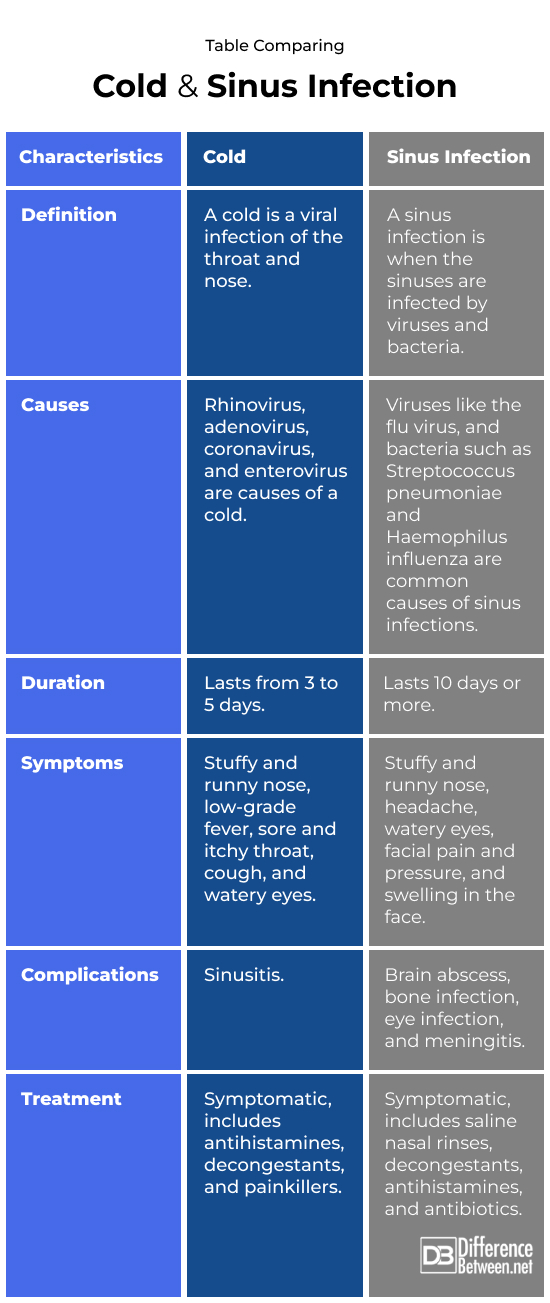Difference Between Cold and Sinus Infection
Both cold and sinus infections are respiratory diseases. They differ in their causes and symptoms.
A cold is caused by viruses including rhinovirus or coronavirus, comes with symptoms such as runny or stuffy nose, sore throat, cough, sneezing, and fatigue. Cold generally lasts for a week and resolves on its own with rest and symptomatic treatment or home remedy. Whereas, a sinus infection also called sinusitis, comes when the sinuses, cheeks, and eyes, become inflamed or infected. Sinus infections comes from viruses, bacteria, or allergies and frequently felt with symptoms similar to a cold. Sometimes sinus infection comes with symptoms such as facial pain or pressure, headache, thick nasal discharge, and loss of smell. Not like a cold, sinus infections can last for weeks and may need medical treatment such as antibiotics or nasal decongestants.
In short, a cold is a viral infection that affects the nose and throat. A sinus infection is when the sinuses are infected and inflamed because of a virus or bacteria.

What is a Cold?
Definition:
A cold is a viral infection that affects the upper respiratory system, the nose and throat.
Causes and prevalence:
Colds are caused by viruses such as the rhinovirus, adenovirus, enterovirus, and coronavirus. The rhinovirus accounts for most colds in the population. The cold is a very common illness affecting everybody at some time or another. It affects adults and children every year, with individuals having anywhere between two to six colds a year. Children are affected more often than adults.
Symptoms and complications:
The signs you have a cold include a runny nose, congested nose, a tickle in your throat, sore throat, low-grade fever, and watering eyes. A complication of a cold is an infection of the sinuses.
Diagnosis:
Diagnosis can be made based on the symptoms you have, but molecular testing can be done to see what virus you have. The molecular test is a PCR test which can indicate which virus you have.
Treatment:
Treatment focuses on symptom relief and includes the use of fever-reducers and painkilling medications. Antihistamines and decongestants may also be helpful.

What is a Sinus Infection?
Definition:
A sinus infection is when the sinuses become infected due to some type of pathogen.
Causes and prevalence:
Sinus infections are caused by viruses and bacteria. Viruses such as the flu virus can cause sinusitis, as can bacteria like Haemophilus influenza and Streptococcus pneumoniae. Fungi are only rarely a cause of sinus infections, and it would be more likely in people with a compromised immune system due to a condition like HIV. It is relatively common to have a sinus infection, with about 14% of adults being diagnosed each year.
Symptoms and complications:
Symptoms of a sinus infection include pain in the face over the sinuses, swelling, runny or congested nose. Headache, fever, cough, and bad breath are also signs of sinusitis. On rare occasions, sinus infections can lead to brain abscesses, meningitis, bone infections, and eye infections.
Diagnosis:
Sinus infections are often diagnosed based on your symptoms. However, further testing can be done by doing a CT scan or nasal endoscopy. A nasal swab can also be taken and the organism cultured.
Treatment:
Treatment of sinus infections can include using saline rinses, and taking decongestants, allergy medicine, and antibiotics. Antibiotics are not always necessary because sometimes the cause is a virus. Only a doctor can determine if your problem is likely bacterial and prescribe antibiotics for you.
Difference between Cold and Sinus Infection?
Definition
A cold is when a virus infects the throat and nose. A sinus infection is when viral or bacterial organisms infect the sinuses, causing inflammation.
Causes
Causes of a cold include the rhinovirus and adenovirus. Causes of a sinus infection include bacteria and viruses.
Duration
A cold can last anywhere from about three to five days. A sinus infection lasts more then 10 days.
Symptoms
The signs of a cold include a congested and runny nose, low-grade fever, sore and itchy throat, cough, and watery eyes. The signs of a sinus infection include runny nose, congested nose, headache, watery eyes, facial pain and pressure, and swelling in the face.
Complications
Sinusitis is a common complication of a cold. Sinus infections can result in serious problems, such as brain abscesses, meningitis, eye infections, and bone infections.
Treatment
A cold can be treated with antihistamines, decongestants, and painkillers. Sinus infections can be treated with antibiotics, antihistamines, decongestants, and painkillers.
Table comparing Cold and Sinus Infection

Summary of Cold Vs. Sinus Infection
- A cold is due to a virus and it affects the upper respiratory system.
- A sinus infection can be due to either viruses or bacteria and it impacts the sinuses.
- The aim of treatment for sinuses and colds is to alleviate the symptoms.
FAQ
How do I know if I have a cold or sinus infection?
A cold will not last much longer than five days while a sinus infection will. A sinus infection more typically causes facial swelling, and pain is felt over the sinuses of the face and head.
Can I have a sinus infection but no cold?
Yes, it is possible to have a sinus infection but not a cold.
Do I need antibiotics for a sinus infection?
Antibiotics are not needed if you have a sinus infection that is due to a virus. However, if your sinus infection is caused by bacteria then antibiotics are the appropriate choice for treatment of the illness.
Can sinus infections go away on their own?
Yes, it is possible for a sinus infection to go away after a few weeks.
Do colds turn into sinus infections?
Yes, a cold can lead to a sinus infection.
What are sure signs of a sinus infection?
The feeling of pressure in the face along with bad breath and a stuffy nose are sure signs of a sinus infection.
- Difference Between Rumination and Regurgitation - June 13, 2024
- Difference Between Pyelectasis and Hydronephrosis - June 4, 2024
- Difference Between Cellulitis and Erysipelas - June 1, 2024
Search DifferenceBetween.net :
1 Comment
Leave a Response
References :
[0]Image credit: https://www.canva.com/photos/MAEFCxUnM7M-sinus-infection/
[1]Image credit: https://www.canva.com/photos/MAEEYh5qOgw-cold/
[2]Cleveland Clinic. “Sinus infection (Sinusitis)”. Cleveland Clinic, 2023, https://my.clevelandclinic.org/health/diseases/17701-sinusitis#symptoms-and-causes
[3]Fried, Marvin P. “Sinusitis”. Merckmanuals. Merck & Co., 2022, https://www.msdmanuals.com/professional/ear,-nose,-and-throat-disorders/nose-and-paranasal-sinus-disorders/sinusitis
[4]Teseni, Brenda L. “Common Cold”. Merckmanuals. Merck & Co., 2022, https://www.msdmanuals.com/professional/infectious-diseases/respiratory-viruses/common-cold

I love my neti pot and recommend nasal irrigation all the time! No, it’s not exactly killer party conversation but good habits w/ the sinuses can go a long way toward good health.
I am a huge believer in natural cures, and in not jumping to meds or surgery too quickly. However I must say that if things get to the “chronic†stage don’t mess around. See your doctor and then if you get a ct scan make sure you know all your options (it used to be that sinus surgery was the only option. but now there are less invasive choices like balloon sinuplasty).
That’s my two cents. Take care everybody and keep those nasal passages clean!
–Erin G